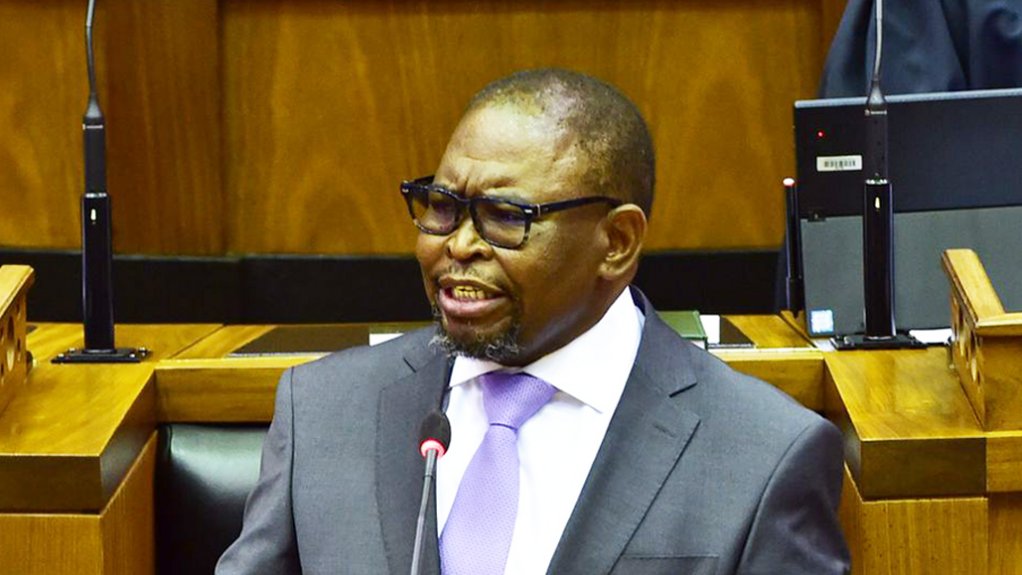Just over a year after a wave of violent unrest swept through KwaZulu-Natal and Gauteng, Finance Minister Enoch Godongwana has warned that the continued decay of service delivery by local government is a fertile breeding ground for economic strife and future instability in SA.
The minister on Thursday urged municipalities to meet the national government halfway in providing basic services by maintaining their infrastructure and spending their basic service delivery grants.
The unrest in July last year was characterised by the looting of stores and destruction of business infrastructure. It started when former president Jacob Zuma was arrested for refusing to appear before the State Capture Inquiry, but eventually descended into widescale looting and damage to property.
"While much of the rioting was undoubtedly driven by criminal elements, it found fertile ground in the desperate economic situation faced by many of our people," said Godongwana said at the Chris Hani District Municipality Economic Development and Investment Summit, in Komani in the Eastern Cape.
He also highlighted that factories, plants and small businesses were closing shop and retrenching workers, because they could not rely on the timely provision of electricity and water by municipalities.
Godongwana's address also comes as 43 of South Africa's 257 municipalities are in a state of financial distress, while another 112 have adopted budgets that they cannot fund. Struggling to collect revenue, repay debts, and fund the provision of basic services has become a common feature of local government in South Africa.
Godongwana said the Chris Hani municipality underspent on infrastructure grants and returned the money to the National Revenue Fund in the last half a decade. He said municipalities could forget about creating a climate conducive to attracting investment if they could not reliably provide basic services.
"In 2016/17, an amount of R38.9-million went unspent by the municipality and had to be returned to the National Treasury. In the following year, 2017/18, R65-million was returned to the National Revenue Fund by the municipality. In 2018/19, nearly R240-million was unspent.
"That figure was R97-million in 2019/20. Surely these kinds of figures are not helpful. It is unfathomable that a municipality in a province like the Eastern Cape, where poverty, inequality, and unemployment indicators are consistently higher than the national average, could fail to spend money on providing key services," said Godongwana.
Godognwana said the government dedicated over R200-billion to infrastructure in recent years and that this was not being seen on the ground at a local government level.
The minister said the National Treasury would support municipalities by providing skills development programmes, amending funding and quality assurance mechanisms, expanding opportunities for work-based learning, and updating the Critical Skills List to allow for the import of scarce skills.
"However, it falls to municipalities and provinces to put in place the budgetary mechanisms, to hire qualified people with the desired skills, and provide proper oversight, accountability, project planning, and preparation, for infrastructure building and maintenance projects to be successfully executed," he said.
Godongwana said several municipalities are under-budgeting for infrastructure maintenance, leading to potholes, burst sewer pipes, and "an overall falling level of service delivery".
He said the National Treasury found that 150 municipalities in the country are bankrupt or insolvent, unable to pay creditors or even service pensions.
Godongwana said there was potential for Chris Hani District Municipality to play a co-ordination role with the local municipalities that fall under it by harnessing skills at the district level to deliver infrastructure projects.
"Chris Hani District Municipality is allocated close to R4-billion over the medium-term expenditure framework ending in 2024/25. Front-loading would allow the municipality to spend on infrastructure in year one, to the value of allocations over a three-year period. When we can accurately diagnose the problem, then we can collectively produce solutions," Godongwana said.
EMAIL THIS ARTICLE SAVE THIS ARTICLE
To subscribe email subscriptions@creamermedia.co.za or click here
To advertise email advertising@creamermedia.co.za or click here











